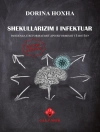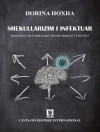Greenhouse gas removal (GGR) technologies can remove greenhouse gases such as carbon dioxide from the atmosphere. Most of the current GGR technologies focus on carbon dioxide removal, these include afforestation and reforestation, bioenergy with carbon capture and storage, direct air capture, enhanced weathering, soil carbon sequestration and biochar, ocean fertilisation and coastal blue carbon. GGR technologies will be essential in limiting global warning to temperatures below 1.5°C (targets by the IPCC and COP21) and will be required to achieve deep reductions in atmospheric CO2 concentration. In the context of recent legally binding legislation requiring the transition to a net zero emissions economy by 2050, GGR technologies are broadly recognised as being indispensable.
This book provides the most up-to-date information on GGR technologies that provide removal of atmosphere CO2, giving insight into their role and value in achieving climate change mitigation targets. Chapters discuss the issues associated with commercial development and deployment of GGRs, providing potential approaches to overcome these hurdles through a combination of political, economic and R&D strategies.
With contributions from leaders in the field, this title is an indispensable resource for graduate students and researchers in academia and industry, working in chemical engineering, mechanical engineering and energy policy.
Inhaltsverzeichnis
Introduction; Greenhouse Gas Removal: Overview and Current Status of Deployment; Negative Emissions: The Role and Response of the Climate System; Accounting Negative Emissions. How Difficult Could It Be?; Bioenergy with Carbon Capture and Storage (BECCS); Direct Air Capture; Geochemical Negative Emission Technologies; Soil Carbon Sequestration and Biochar; Afforestation/Reforestation (AR); Feasibility of Using Biologically-based Processes in the Open Ocean and Coastal Seas for Atmospheric CO
2 Removal; Comparison of Technologies and Practices for Removing Carbon Dioxide from the Atmosphere; Global Distribution of Negative Emissions; Political and Socio-economic Challenges of Greenhouse Gas Removal Technologies; Priorities for Policy Design; Socially Equitable Energy Transitions: Analytical Challenges and Policy Implications
Über den Autor
Dr Niall Mac Dowell is a Senior Lecturer (Associate Professor) in Energy and Environmental Technology and Policy in the Centre for Environmental Policy at Imperial College London, where he currently leads the Clean Fossil and Bioenergy Research Group. He is a Chartered Engineer with the Institution of Chemical Engineers and is on the Executive Board of the IChem E’s Energy Centre, a member of the Technical Working Group of the CCSA and the ZEP on industrial decarbonisation and a member of the UKCCSRC. He currently leads a research group of 5 PDRAs, 10 Ph D students all of whom are focused on technology development for climate change mitigation and has published work at the molecular, process and network scales in this context. He has given advice to DECC, the IEA, the ETI and the JRC and has travelled on behalf of the Foreign Office to China and Korea to promote low carbon power generation. He is currently the PI on the EPSRC-funded project MESMERISE-CCS and the IEA-funded project Flex EVAL and Co-I on the EPSRC-funded projects Opening Future Fuels and CCSIn Supply and the UKCCSRC funded project BECCS-IL in addition to the FP7 Project CO2QUEST. He was awarded the 2010 Qatar Petroleum Prize and the 2015 IChem E Nicklin medal for research excellence in low carbon energy.












